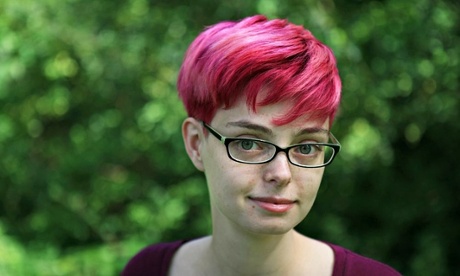
The movement for more diversity in fiction isn’t new, but it’s exploded in recent years. Not only are people talking about it, new diverse books are being published on a regular basis. A big difference between these books and older ones is that the diverse elements of newer books are often an incidental part of the characters. This is, by and large, a marvellous and necessary progression — but as both an author and a reader, I wonder whether this “incidental diversity” is sometimes praised disproportionally.
Allow me to explain.
Historically speaking, diverse books are often “issue books,” in which the character’s identity forms the core of the story. Books about protagonists of colour would automatically be about racism, immigration, or poverty; books about disabled characters would automatically be about their changed life, people’s skewed perceptions, or “overcoming” disability; books about fat characters would be about weight loss or self-acceptance; and so on and so forth.
Many people clamour for a different approach to diversity. Marginalized characters should get to go on the same adventures as more privileged characters. Why shouldn’t an Asian character expose a government conspiracy? An autistic boy become a werewolf? A lesbian girl start a school newspaper? And why shouldn’t they be able to do these things without their marginalized identity ever becoming an issue? Many of us do homework, hang out with friends, or play video games pretty much the same way anyone else would. Our lives don’t revolve around being marginalized, and it’s exhausting to only see ourselves reflected in characters whose entire role is to be different.
All this is true, and we do need more incidental diversity, but it’s often seen as The One True Path to doing diversity right. Review after review praises books for their understated approach to diversity, saying how it’s not an “issue,” the diverse characters “just are,” and how wonderful it is that barely any comment was made about a certain character being queer/Black/using a wheelchair. Sometimes, books only hint at a character’s identity, or indicate it via a throwaway mention or two.
That approach works for some stories. It especially suits fantasy or science fiction settings where authors can build a world from scratch. In real life, though, marginalized people are affected. Much is made of “not being defined by disability,” for example, but every disabled person I know groans at that line. Disability informs a huge chunk of people’s lives, whether good or bad, and it’s not shameful to acknowledge that. Identity is not simply skin-deep.
It’s a fact that ableism, homophobia, and racism influence countless aspects of people’s everyday lives. Micro-aggressions, stereotypes, internalized prejudice, flagrant bigotry, institutionalised discrimination… There are also other matters to consider: accessibility, hair or skin care, limited dating pools, communities, culture, etc.
When none of these elements are acknowledged in realistic fiction, I notice. When the absence of those elements is praised, I notice especially.
And I wonder — perhaps uncharitably — are diverse characters only OK as long as they’re not too diverse?
While I’m glad that people realise the need for diversity beyond issue books, the solution is not to only write or applaud books that gloss over people’s differences and different experiences entirely. There are many ways to incorporate the above elements into books — to a greater or lesser extent, and whether positively or negatively — which can make characters and their backgrounds ring true to the very readers who may identify with them.
Furthermore, while people are often negative toward “issue books,” they exist for a reason. Some may be written solely to capitalize on a sensational issue, but many are written by authors who speak from their own experiences. These authors often write the books to help teenagers who may be struggling with — yes — issues. For example, countless queer teenagers deal with narrow-minded communities, homophobic families, homelessness, or the question of coming out. Seeing those experiences reflected in the book can mean the world to them. When we call queer issues in fiction clichéd, repetitive, and outdated, what does that say to the people dealing with those issues?
We need all kinds of books. Books where diverse identities are an issue. Books where they’re barely mentioned. Books that cover a middle ground.
I embrace the evolution of “incidental diversity” and want to see it continue.
I just don’t want it to be the only kind of diversity that’s allowed.
Corinne Duyvis’ Otherbound is available from the Guardian bookshop
Find out what else is happening during the Guardian children’s books diversity week here.

